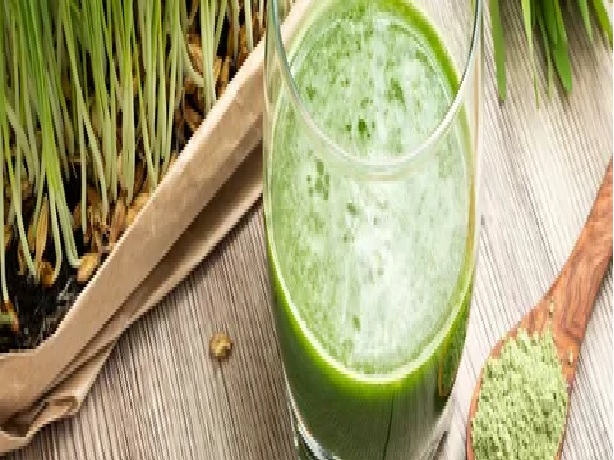Barley grass, the young leafy shoots of the barley plant (Hordeum vulgare), has gained popularity as a superfood due to its rich nutritional profile and potential health benefits. Barley grass is often consumed in the form of juice, powder, or supplements and is valued for its abundance of vitamins, minerals, antioxidants, and phytonutrients. In this comprehensive guide, we will explore the benefits, uses, and precautions associated with barley grass consumption.
Introduction to Barley Grass
Barley grass has been used for centuries in traditional medicine systems such as Ayurveda for its medicinal properties. It is harvested from the young leaves of the barley plant before the grain develops, typically when the plant is about 10 to 12 inches tall. Barley grass is a rich source of essential nutrients, including vitamins A, C, E, and K, minerals such as calcium, magnesium, iron, and potassium, as well as chlorophyll, enzymes, and antioxidants.
Benefits of Barley Grass
Nutrient-Rich Superfood:
Barley grass is a nutrient powerhouse, packed with vitamins, minerals, and antioxidants that support overall health and well-being. It provides essential nutrients necessary for various bodily functions, including immune function, bone health, and energy metabolism.
Antioxidant Properties:
Barley grass contains potent antioxidants such as flavonoids, phenolic compounds, and chlorophyll, which help neutralize harmful free radicals and protect cells from oxidative damage. Antioxidants play a crucial role in reducing inflammation, preventing chronic diseases, and promoting longevity.
Detoxification Support:
The chlorophyll content of barley grass has detoxifying properties that may help cleanse the body of toxins and impurities. Chlorophyll binds to heavy metals and environmental toxins, facilitating their elimination from the body and promoting liver detoxification.
Immune System Support:
Barley grass is rich in immune-boosting nutrients such as vitamins A, C, and E, as well as beta-glucans, which enhance immune function and strengthen the body’s natural defenses against infections and diseases. Regular consumption of barley grass may help support immune health and reduce the risk of illness.
Digestive Health:
Barley grass contains dietary fiber, enzymes, and prebiotics that support digestive health and regularity. Fiber helps promote bowel movements, prevent constipation, and support a healthy gut microbiome, while enzymes aid in the digestion and absorption of nutrients.
Energy and Vitality:
The nutrient-dense composition of barley grass provides a natural energy boost and promotes vitality and well-being. It helps combat fatigue, improve stamina, and enhance physical and mental performance, making it an ideal supplement for individuals with busy and active lifestyles.
Skin Health:
Barley grass contains vitamins, minerals, and antioxidants that promote healthy skin, hair, and nails. Its anti-inflammatory and detoxifying properties may help reduce acne, improve skin tone, and protect against premature aging caused by environmental stressors.
Uses of Barley Grass
Dietary Supplement:
Barley grass is commonly consumed as a dietary supplement in the form of juice, powder, or capsules. It can be added to smoothies, juices, water, or other beverages for a nutrient boost. Barley grass supplements are convenient and easy to incorporate into daily routines.
Juicing:
Fresh barley grass juice can be made by juicing the young barley grass shoots. Barley grass juice is highly concentrated in nutrients and antioxidants and is often consumed as part of detoxification and cleansing regimens. It has a slightly bitter taste but can be combined with other fruits and vegetables for added flavor.
Culinary Uses:
Dried barley grass powder can be used as a nutritious ingredient in various culinary applications. It can be added to soups, salads, sauces, dressings, and baked goods for added flavor and nutritional value. Barley grass powder can also be sprinkled over cereals, yogurt, or oatmeal for a nutrient boost.
Precautions and Considerations
While barley grass is generally considered safe for most people when consumed in moderation, there are a few precautions to consider:
Allergies
Individuals with allergies to barley or gluten should avoid barley grass products, as they may trigger allergic reactions or adverse effects.
Pregnancy and Breastfeeding
Pregnant and breastfeeding women should consult with a healthcare professional before using barley grass supplements, as safety during these periods has not been extensively studied.
Medication Interactions
Barley grass may interact with certain medications, particularly blood thinners and medications for diabetes or high blood pressure. It’s essential to consult with a healthcare provider before adding barley grass supplements to your regimen if you are taking medications.
Conclusion
In conclusion, barley grass is a nutrient-rich superfood with a wide range of potential health benefits. From its antioxidant and immune-boosting properties to its support for detoxification, digestion, and energy levels, barley grass offers numerous advantages for overall health and well-being. Whether consumed as a dietary supplement, fresh juice, or culinary ingredient, barley grass can be a valuable addition to a balanced diet and healthy lifestyle. However, it’s essential to be mindful of potential allergies, medication interactions, and individual considerations before incorporating barley grass into your routine. As with any dietary supplement, moderation and consultation with a healthcare professional are key for optimal safety and effectiveness.
- Exploring the Top CBD Edibles A Comprehensive Review By Vapes Super Store - April 9, 2024
- Benefits of Cranberry Supplements - April 2, 2024
- Benefits of Collagen Supplements - April 2, 2024

